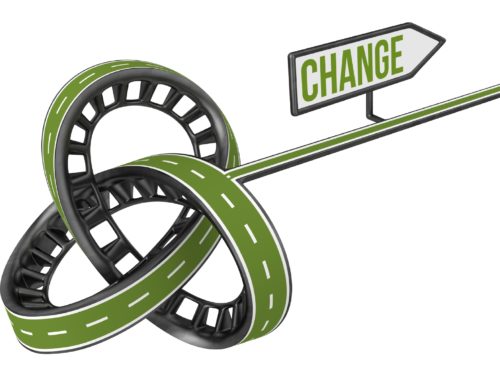Uncertainty and upheaval empower the voices of change, and a drumbeat for a new kind of leadership is emerging. By at least some indications, leaders are listening.
A report released by McKinsey & Company says that 78 percent of executives plan to change how their leaders lead on a day-to-day basis as a result of the COVID-19 pandemic. Sixty percent plan to change cultural mindsets and behaviors within their organizations. Even 12 percent are looking at changes in their corporate purpose.
It is important to recognize that these changes we want are to the goals, purpose, and mechanics of leadership. The essential role of leadership isn’t changing. It has always been about your ability to influence the actions and outcomes of others to achieve positive results.
COVID-19 hasn’t changed that responsibility. It has merely reinforced the need to be better at it tomorrow than you are today.
So how do you lead … or should I say influence others? What gives you the power and authority to earn others’ willingness to follow as you navigate the uncharted territory of the New Next?
In the early 1990s, I wrote that leaders have three sources of power.
- Positional power: Followers acknowledge your leadership position and follow. Sometimes they do so out of respect for the position and chain of command. Other times they do so because of they fear the consequences of disobedience. Either way, you earn the right to lead because of the position you hold.
- Transactional power: This is the classic quid quo pro approach to leadership. The best uses of transactional power trade an agreed upon, transparent rate of return for a specified amount of your time, talent, and effort. The quid quo pro can also be implied, but that is a much risker approach. You are only as successful as your ability to continually offer something of value.
- Relationship power: Do you care about me? Have you invested in helping me reach my goals? Do I trust that you aren’t simply trying to manipulate me for your own goals? A “YES” answer to these questions indicate that we have a relationship that goes beyond the traditional boss and subordinate.
Each of these power sources can – when used in the right time, place, and manner – be effective today. A clear chain of command is immensely important when coordinating action during a crisis. Companies are using transactional power in the form of bonuses to entice essential workers to show up for work in the face of the COVID risk.
Strong relationships built on trust earn discretionary effort. It also gives you the benefit of the doubt when you need followers to trust your decisions even though they can’t know all of the information that informs them.
Wait … there’s more!
You will need two additional sources of power to successfully influence others in today’s world:
- Credibility power: Credibility is no longer automatically assigned to a position of authority. It has to be earned. Information on demand, the questioning of motives, and the belief in “alternative facts” have corrupted our inherent trust in experts and expertise. Followers take you seriously because the trust your competence, character, and courage to do the right thing when it isn’t convenient.
- Purpose power: The effectiveness of today’s social and cultural movements – regardless of your support for them – demonstrates that purpose is more powerful than personality. Shared purpose extends your influence beyond position, quid pro quo, and relationships. It moves people from following individuals to doing whatever it takes to advance the cause.
These sources of influence have always been there. They were even utilized by leaders in the past just as they are today. Like the “discovery” of a new star in the galaxy, they went unnoticed and under-appreciated when viewed through the prevailing lens of the time.
Over 200 EDS employees volunteered for a mission to rescue two colleagues held in an Iranian prison in 1978. They did so because of the power of credibility and purpose Ross Perot demonstrated in building that company’s culture.
John Montgomery founded Bridgeway Capital Management in 1993 with the belief that a strong, principled organizational culture coupled with disciplined investment processes allows them to deliver innovative solutions.
That could be the stated beliefs of any number of companies. Bridgeway, on the other hand, walks the talk.
Ask Montgomery about the company’s proudest accomplishments and you will hear two things:
- Bridgeway gives away 50% of its after-tax profits through its Bridgeway Foundation.
- The company has grown into an employer that enjoys immense loyalty from its staff because of the way it treats people.
Niccolo Machiavelli was first attributed with the quote “Never waste the opportunity offered by a good crisis.”
The traditional power sources of positional authority, transactional trades, and strong relationships are still useful. Leaders flourish when the master the power of credibility and purpose in the face of uncertainty and upheaval.
Randy Pennington is an award-winning author, speaker, and leading authority on helping organizations achieve positive results in a world of accelerating change and uncertainty. To bring Randy to your organization or event, visit www.penningtongroup.com , email info@penningtongroup.com, or call 972.980.9857.





